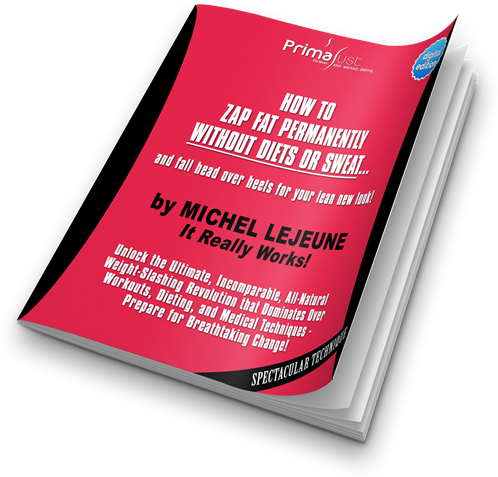Emotional eating during times of stress is a common coping mechanism that many individuals’ resorts to. It involves consuming food not out of physical hunger but as a response to emotional triggers such as anxiety, sadness, or frustration. In our previous blog we wrote about Discover the Benefits & Metabolic Health Effects of HIIT Exercise. In this blog post, we’ll explore the importance of addressing emotional eating during stressful periods and provide you with seven powerful tips to reduce emotional eating during times of stress.
Understanding Emotional Eating During Times of Stress
 When stress takes a toll on our mental and emotional state, our bodies often crave comfort and distraction, leading to emotional eating.
When stress takes a toll on our mental and emotional state, our bodies often crave comfort and distraction, leading to emotional eating.
Understanding the connection between emotions and food cravings is the first step in gaining control over this behavior.
Stress can disrupt normal eating behaviors, leading to overeating or seeking out unhealthy comfort foods.
The long-term consequences of emotional eating may include weight gain, guilt, and further emotional distress.
7 Powerful Tips to Reduce Emotional Eating During Times of Stress
Tip 1: Recognizing Triggers and Emotional States
 During times of stress, emotional eating can become a default coping mechanism.
During times of stress, emotional eating can become a default coping mechanism.
To break free from this pattern, it’s crucial to recognize the triggers that lead to emotional eating.
These triggers can be specific events, situations, or even certain emotions.
Take time to reflect and identify what sparks your emotional eating episodes.
Common triggers include work-related pressures, relationship conflicts, financial stress, or feelings of loneliness and boredom.
Once you’ve identified the triggers, develop strategies to understand and manage your emotions effectively.
This may involve keeping a journal to track your feelings and thoughts, which can provide valuable insights into emotional patterns.
Mindfulness practices, such as meditation and deep breathing exercises, can also help you become more aware of your emotional states.
By cultivating mindfulness, you’ll gain better control over your reactions to stressors and reduce the likelihood of turning to food for comfort.
Tip 2: Building a Support System
 Dealing with stress and emotional eating can be challenging when you’re facing it alone.
Dealing with stress and emotional eating can be challenging when you’re facing it alone.
Building a strong support system is essential during these times.
Reach out to friends, family members, or coworkers you trust and feel comfortable sharing your feelings with.
Their support and encouragement can provide comfort and reassurance.
Sometimes, seeking advice or just having someone listen without judgment can be incredibly beneficial.
If you prefer to connect with others who may share similar experiences, consider joining virtual support groups.
These online communities can be a safe space to express yourself, offer support to others, and gain valuable insights into coping strategies.
Engaging with like-minded individuals can create a sense of camaraderie and alleviate feelings of isolation.
Tip 3: Practicing Stress-Relief Techniques
 Stress relief is paramount in reducing emotional eating tendencies.
Stress relief is paramount in reducing emotional eating tendencies.
Adopt stress-relief techniques like meditation, deep breathing exercises, or yoga to calm your mind and relax your body.
Engaging in regular physical activity, such as exercise, has proven to be effective in reducing stress and elevating mood.
The release of endorphins during exercise acts as a natural mood booster, making it less likely for you to seek comfort in food during stressful moments.
Find what activities resonate with you the most and incorporate them into your daily routine.
Even a short walk-in nature or a few minutes of guided meditation can make a significant difference in managing stress and emotional well-being.
Tip 4: Creating a Balanced and Mindful Eating Plan
 To curb emotional eating, adopt a balanced and mindful eating plan. Focus on nourishing your body with whole, nutritious foods rather than resorting to emotional eating triggers such as sugary or processed snacks.
To curb emotional eating, adopt a balanced and mindful eating plan. Focus on nourishing your body with whole, nutritious foods rather than resorting to emotional eating triggers such as sugary or processed snacks.
Mindful eating involves paying close attention to hunger cues and savoring each bite during mealtimes.
Avoid distractions like screens or work while eating to be fully present with your food.
Plan your meals and snacks ahead of time to prevent impulsive, emotionally driven food choices.
When you have healthy options readily available, you’re less likely to turn to comfort foods during stressful moments.
Prepare nutritious meals in advance and keep healthy snacks on hand for those times when emotional cravings strike.
Tip 5: Finding Healthy Ways to Cope with Stress
 Instead of using food as a coping mechanism, explore alternative ways to manage stress and emotions.
Instead of using food as a coping mechanism, explore alternative ways to manage stress and emotions.
Engage in activities that bring joy and relaxation, such as reading, painting, or spending time in nature.
Engaging in hobbies can serve as a healthy distraction and redirect your focus from food to something productive and enjoyable.
Creativity can be a powerful outlet for managing stress and emotions.
Expressing yourself through art, music, or writing can provide emotional release and contribute to a sense of well-being.
It allows you to channel your emotions in a positive and constructive manner.
Tip 6: Improving Sleep and Restorative Practices
 Adequate sleep is crucial for emotional regulation. Establish a consistent bedtime routine and create a calm sleep environment to improve the quality of your rest.
Adequate sleep is crucial for emotional regulation. Establish a consistent bedtime routine and create a calm sleep environment to improve the quality of your rest.
Avoid screen time before bed and practice relaxation techniques to ease your mind for a restful night’s sleep.
Incorporate restorative practices into your daily routine to unwind and de-stress.
Activities like meditation, gentle stretching, or even a warm bath can help you relax and promote emotional balance.
Taking time for yourself and ensuring sufficient rest can go a long way in managing stress and reducing the urge to resort to emotional eating.
Tip 7: Seeking Professional Help When Needed
 Recognize that seeking professional help is a courageous step toward healing and self-improvement.
Recognize that seeking professional help is a courageous step toward healing and self-improvement.
If emotional eating becomes overwhelming or difficult to manage on your own, consider therapy or counseling.
A qualified mental health professional can help you address underlying emotional issues and develop effective coping strategies.
Overcoming the stigma associated with seeking help is essential for your overall well-being. Remember that you don’t have to navigate the journey alone.
Professional support can provide you with the tools and guidance to break free from emotional eating patterns and lead a healthier, more balanced life.
Conclusion
By implementing these seven powerful tips to reduce emotional eating during times of stress, you can take control of your emotional well-being and develop healthier ways to cope with uncertainty.
Remember, the journey may not always be smooth, but practicing self-compassion and patience is crucial.
Be kind to yourself, and don’t hesitate to reach out for support when needed.
Embrace these strategies, and experience positive changes in your emotional eating habits, empowering you to lead a healthier and happier life.
Do you find yourself turning to food for comfort during stressful times?
Emotional eating can take a toll on your well-being, leading to weight gain and further emotional distress.
In this blog post, we've explored seven powerful tips to help you reduce emotional eating during periods of stress.
But what if there were a way to unlock your metabolism for all-natural weight loss, enabling you to shed those extra pounds effortlessly, without dieting or exercise?
You're in luck! Allow us to introduce the PrimaJust weight loss method!
By downloading our still-free report, you'll discover The Exact Method to Unlock Your Metabolism for All-Natural Weight Loss, Enabling You to Lose 1-3 Pounds Per Week Automatically—No Diet or Exercise Needed!
Don't miss this opportunity to take control of your health and well-being.
Click the link below to get your free report now!
[Source]Free Report
If you found this blog post helpful, don’t forget to share it with others.
Expand your understanding with these essential related blog posts
-
How to Stop Emotional Eating from Stress: 10 Effective Strategies
Emotional eating is a common response to stress, where individuals turn to food for comfort…
-
7 Tips to Avoid Emotional Eating During the Holidays
The holiday season is a time of joy, celebration, and indulgence. As we gather with…
-
How to Stop Stress Eating: Thriving Amid Workplace Stress
Stress eating, a common response to workplace stress, can have a negative impact on our…

















